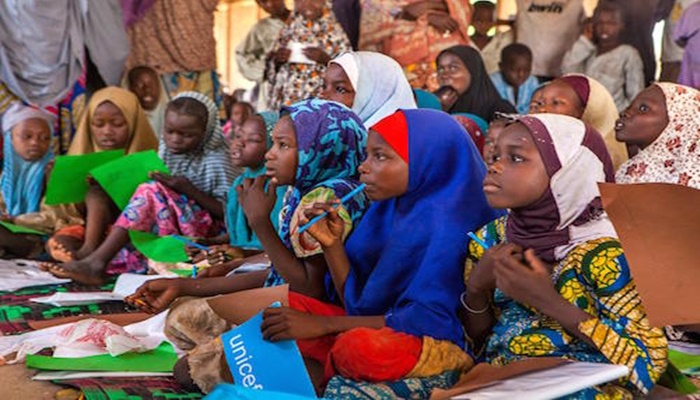
The United Nations Children’s Fund (UNICEF) on Monday said no fewer than 19 million children are unregistered during and after birth in Nigeria.
The Child Protection Specialist, UNICEF, Sharon Oladiji, said this in Kano at a 2-day media dialogue organised by UNICEF for stakeholders, media and health personals across the 19 Northern states.
According to her, among the 10 countries, with the largest number of unregistered children, India has the most by a wide margin of 71 million while Nigeria follow with 17 million.
“10 countries will also contribute massively to the region’s immense population increase in absolute terms between 2015 and 2050. Nigeria is expected to contribute at least 257 million additional inhabitants.
“Kenya and Niger will contribute plus 50 million and Sudan with plus 38 million.
“The possible consequence of a weak birth registration system is planning blindly, incapacity to generate relevant public health data and national estimate and population planning,’’ she said.
Oladiji described poor demand factors as a primary cause for non-registration and low level of public awareness on the importance of birth registration.
The UNICEF specialist explained that the issue of unregistered children during birth in Nigeria was worrisome as it has a lot of implications in the country.
Oladiji said that in all Local Government Areas across the country, there should be an officer responsible for the registration of children immediately after birth.
She called on the participants to start the campaign by ensuring the registration of at least 10 to 20 children daily in their communities.
Oladiji advised media personnel to introduce special programmes, jingles and news sections aimed at educating, enlightening and informing the public, especially at the rural areas on the importance of birth registration.
“The waiver of fees was made in Nigeria as a result of low birth registration. Introducing fees will further limit the already low level of birth registration coverage,’’ she said.
Oladiji said that most children affected by low registration are mostly those of the poor parents, uneducated and leaving in slums, very rural and hard to reach communities.
According to her, these children will never be registered, counted or accounted for to access social services.
She added that children of single mothers, teenage mothers and out of school and uneducated girls have such challenges.
-NAN






